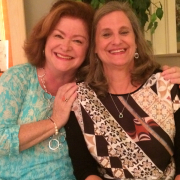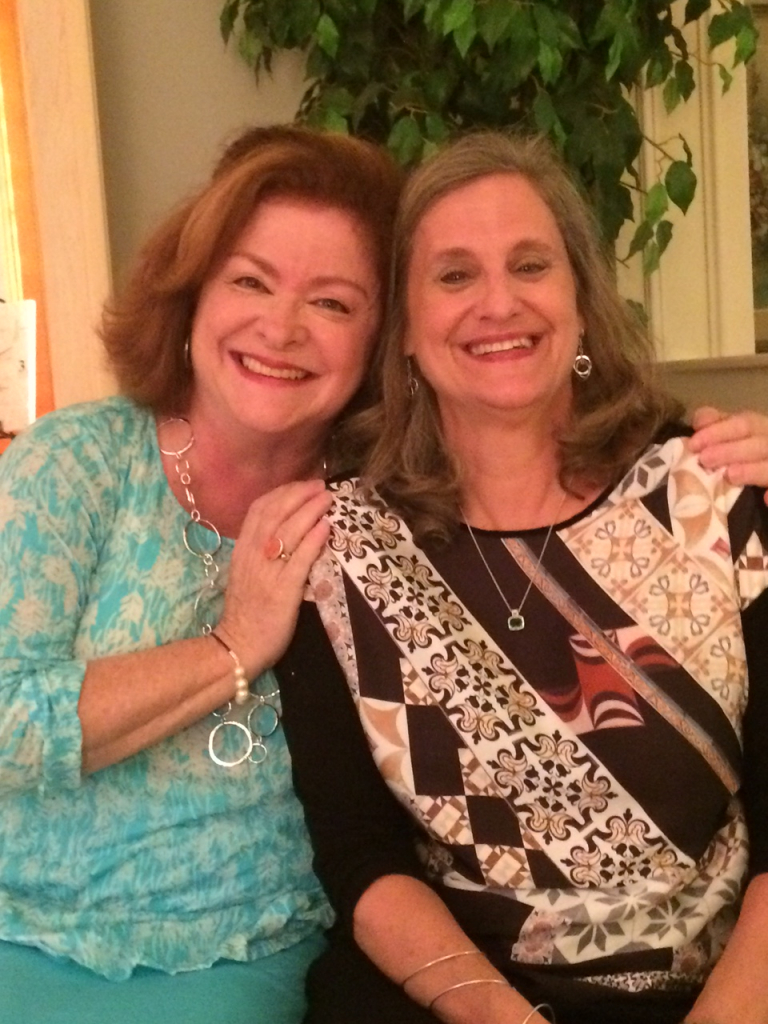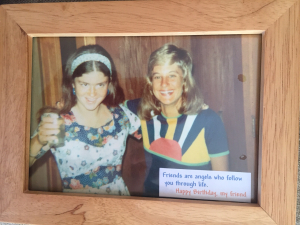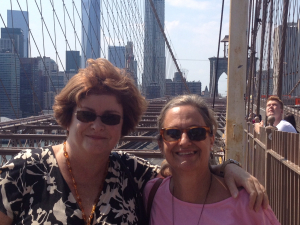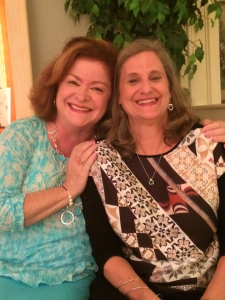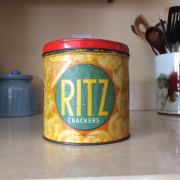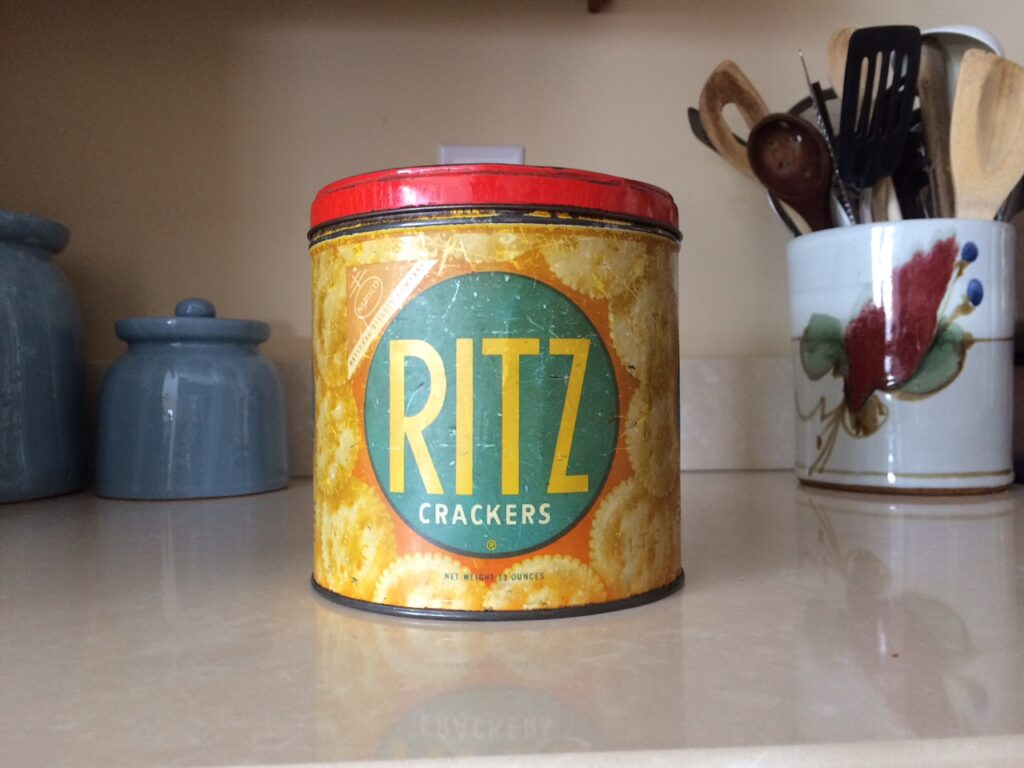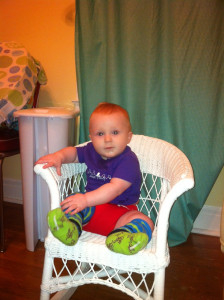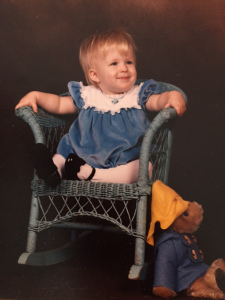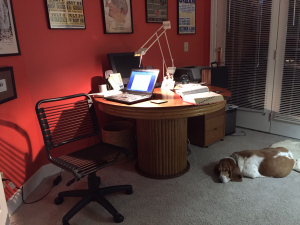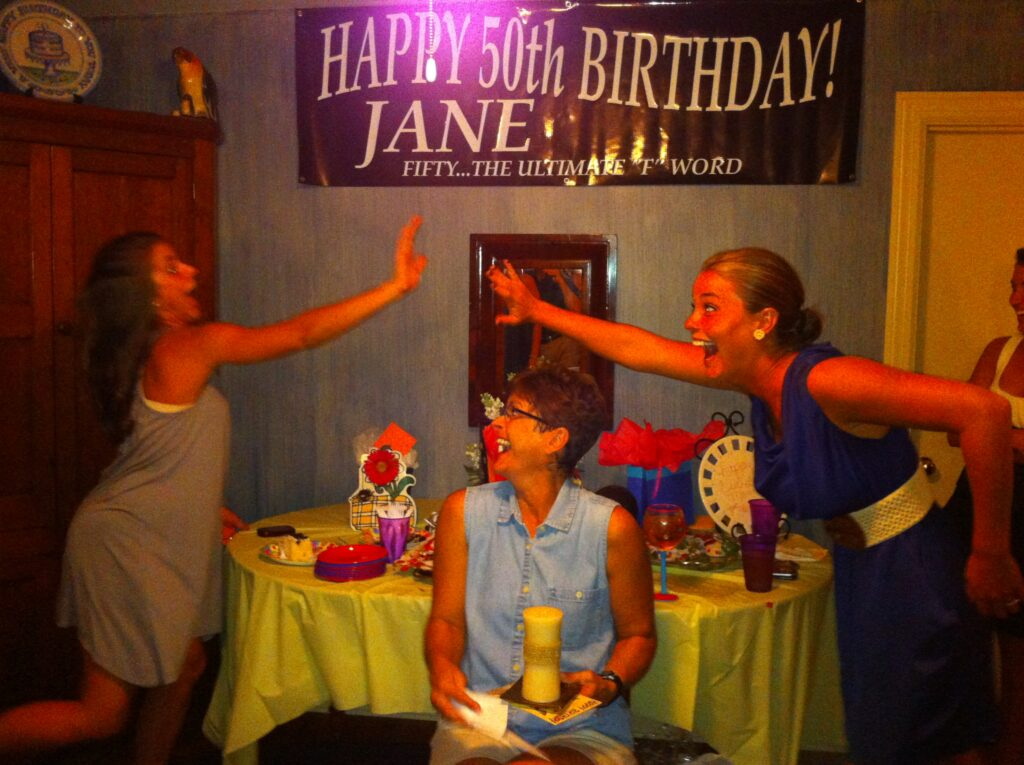
Back Camera
It’s a funny thing about sisters and brothers.
You might long for them if you don’t have any. But if you do, nothing in your life will ever drive you nuts in quite the same fashion. That is, if you are like most of humanity.
Ours was a family of four kids, so common in those boomer days, three girls followed by a boy. My memories of my siblings as young children are distinctly unremarkable. They might have been the bathroom wallpaper or the kitchen chairs–just there, the landscape of daily life, to be worked with, or around, as daily functioning might require. No more, no less.
And then there was later, when inevitable dissonance and occasional outright war emerged with the arrival of adolescence. Cruelty comes so easily then, and we devised our fair share and pointed it at each other. When my older sister embarrassed me in front of, heaven help us, a BOY, I wrote a filthy epithet on her bedroom mirror in Vaseline (an interesting tool, yes?), using words I had never uttered out loud and might not have been able to define. This awkward retribution earned me one of the most significant punishments of my young life.
But we three girls earned an even better one when we decided to show our young brother that he could not expect privacy in our shared bathroom. When he sensibly resisted by locking us out, we picked the lock with a coat hanger and burst in before he could finish his business. Our strict father exhibited zero tolerance for such bullying, thank goodness. And really, remembering how we often we tried similar nonsense, it is a miracle that my brother is not a serial criminal, and still speaks to us.
Such stories, added to the routine family dynamics of adulthood, can crowd the heart at times. So, when my daughter used to joke that she wished for a sister, I joked in return that I would happily give one of mine away.
That was before we lost one.
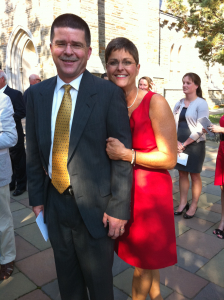
Back Camera
Perhaps more than any of the rest of us, my younger sister Jane signaled very early the adult she would become. Named for both my parents, she was my mother’s spiritual and emotional twin, a magnetic personality endowed with faith and energy and a focus on others that drew people to her like hummingbirds to red petunia blossoms.
Her innate sense of right and wrong was maddening when we were younger. Constitutionally incapable of tolerating unkindness or rule-breaking, she became an incorrigible tattle-tale. For this saintly behavior we christened her Susie Good, and we dispensed revenge any time we could manage it without being caught. We mocked her teeth, adding the nickname Snaggletooth (from the villain in the cartoon Quick Draw McGraw) and denied her entry into many of our games for no explainable reason. Once on vacation we told her the only place available for her to sleep was in the closet, then watched with waning teenage superiority as she made the best of it and refused to cede victory by complaining.
A disposition to care for others that was embedded in her bones drew her to nursing school, and for a quarter century she nursed surgery patients, wounded diabetics, birthing mothers, and a long list of others. She left active practice a few times, unable to disregard frustrations at the system, but she always went back to where she could get her hands on people in need. When I observed that she would have made a great doctor, with more money for less hours worked, she rolled her eyes and shrugged, noting sarcastically that nurses are often closer to patients than doctors, and wasn’t that, after all, the point?
I can’t remember when I went from mocking what I perceived as a campaign for sainthood to admiring the person she became. It might have been when I noticed that she showed up at every major turning point in my adult life. She spent the night before my wedding, dispensing meds for the wedding-day diarrhea, my system’s physical signal of the unspoken fears that I was making a terrible mistake. She took turns with my husband coaching me through labor, joking with the doctor about my cranky demands and patiently explaining every step.
Years went on, but her pattern remained. With my older sister and brother, she came to unpack on moving day and stood by as I sobbed through my daughter’s graduation. She drove an hour to my house so I didn’t have to be alone to tell my daughter the cat died. Then my daughter married, and her aunt helped coached her through the birth of her first child.
My opportunity to try to balance the ledger of debts arrived way too soon, in the way you think happens to other people. Suddenly, other people were us. Diagnosed in her late forties with a rare and lethal form of breast cancer, she set out to wage war, and she succeeded so well for so long that at times we allowed ourselves to assume she would be among the few who beat the odds. Whenever possible, I showed up for appointments and treatments and tests and sat in as bench support.
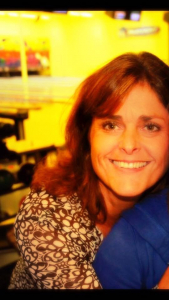
Even with all her professional insight, the system occasionally failed her, with an insurance snafu or a small clinical step overlooked. At those moments, I bared proverbial claws and wanted nothing more than to use them to rip flesh somewhere on somebody, anybody, creating an uglier, bloodier version of Shirley MacLaine’s rant around the nurses’ station in Terms of Endearment. My ferocious anger at any missteps astonished even me, but it didn’t take psychoanalysis or genetics to understand its roots. Watching her struggle was the tiniest millimeter away from experiencing it, since a sister is the nearest replica ever created to a woman’s own being.
When she said she just wasn’t up to attending the birth of my daughter’s second child, instinct told me time was short. Diagnostic affirmation soon followed. Along with her own two daughters (both steadfast, brave and pragmatic like their mother), all three of us siblings took turns at her bedside in those final days. In my heart, deepest dread joined with surprising gratitude for the privilege of being nearby, of witnessing the final steps in a journey she had defined so remarkably, all the way to the end. As I bent to say my farewell on the last day I saw her, I said, “I’ll see you again.” And I still believe it.
A person who lives life in service to others leaves behind a wide legacy of gratitude and, for one taken so young, profound heartbreak. My own sense of loss at first seemed strangely functional, oddly physical. It was like a power tool had ripped away one of my toes or fingers, or like I sat on a stool with a leg missing and was dumped sharply onto my butt on a concrete floor. When grief is described like a part of you is missing, I had never before known how literally that’s true.
Thinking of her so constantly three years after she left us, I’m watching young siblings in our newest generation. Their bonds and conflicts, their tender affection and dissonance, all ebb and flow with time and context. After Buddy and I viewed a spectacular exhibit of antique Italian cars one day recently, the first thing he selected in the museum gift shop, without pausing to ask, was a present for his sister. A couple of days later, I stepped in between them just in time as he screeched in frustration and lunged for her. Her mistake? She had boldly subverted his demands that she stay on her side of the line (literally) and color on her own dadgum side of the page. And so it goes.
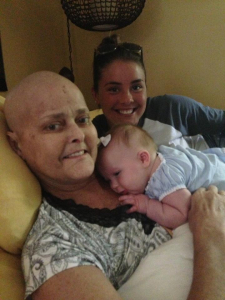
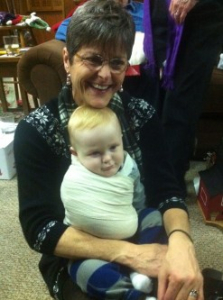
Will love triumph over the oceans of things that shadow sibling relationships over time? Will they stay close enough to cheer each other’s successes, maybe even help the other one get there? If one is touched by tragedy, will the other stand shoulder-to-shoulder, ready to fight whatever needs fighting? Of all my prayers for their future, none is more fervent than the one hoping nothing alters that singular sibling bond.
That, and the chance to be around long enough to see what happens.





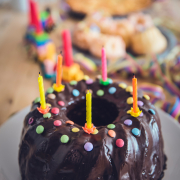
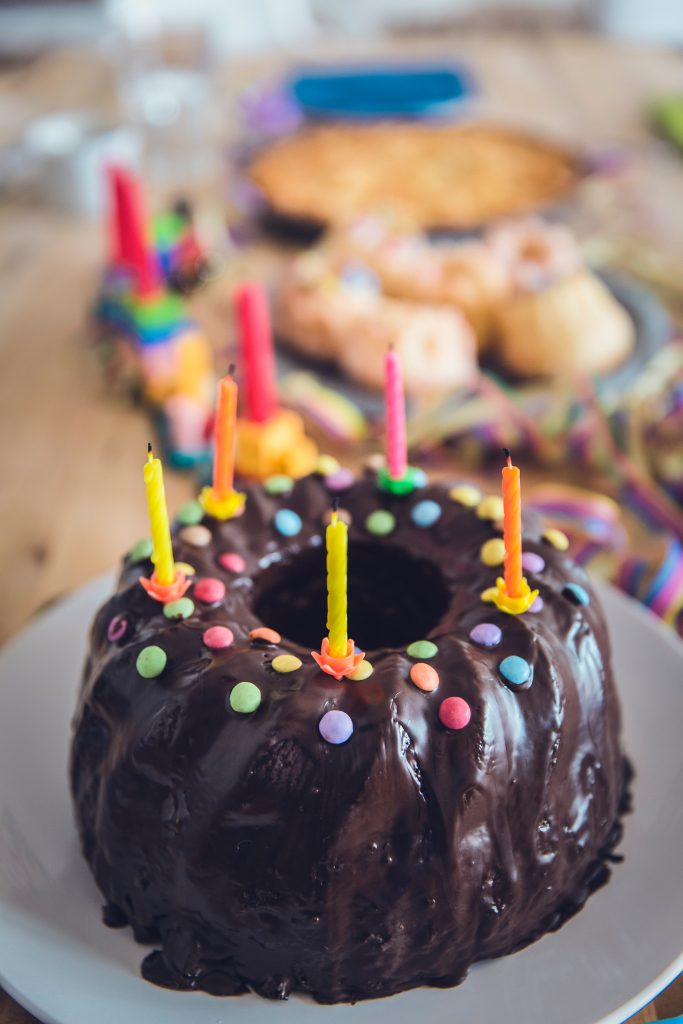
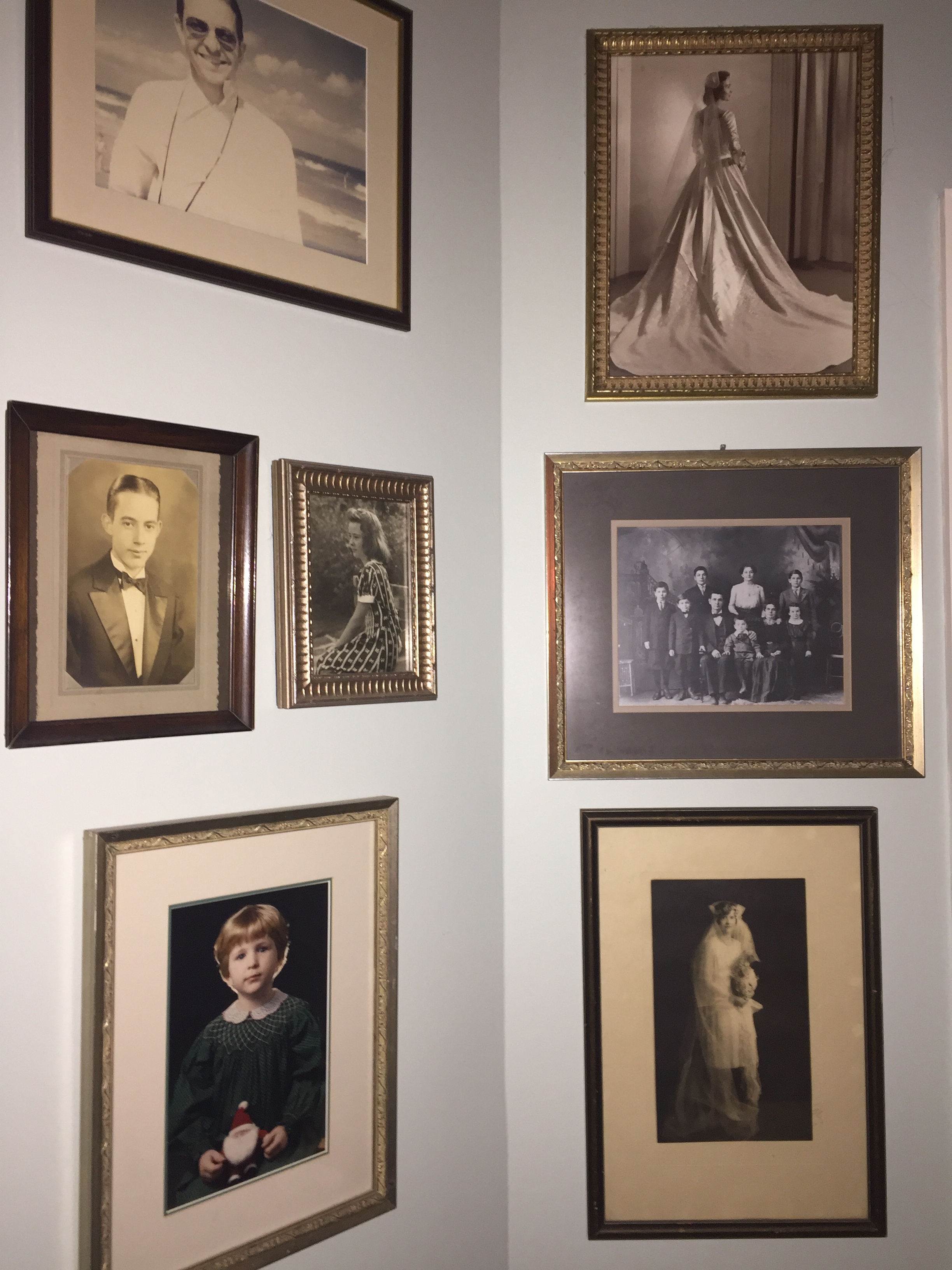
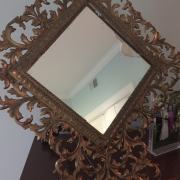
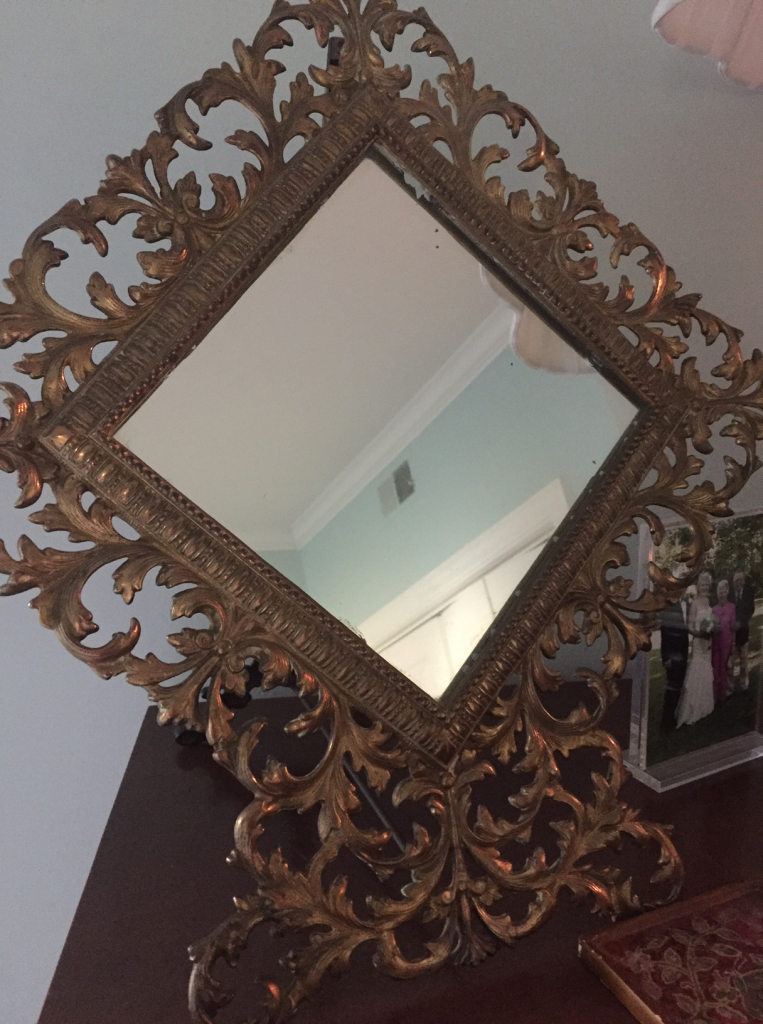



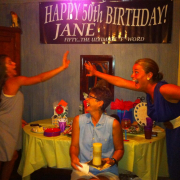





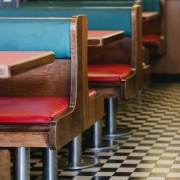
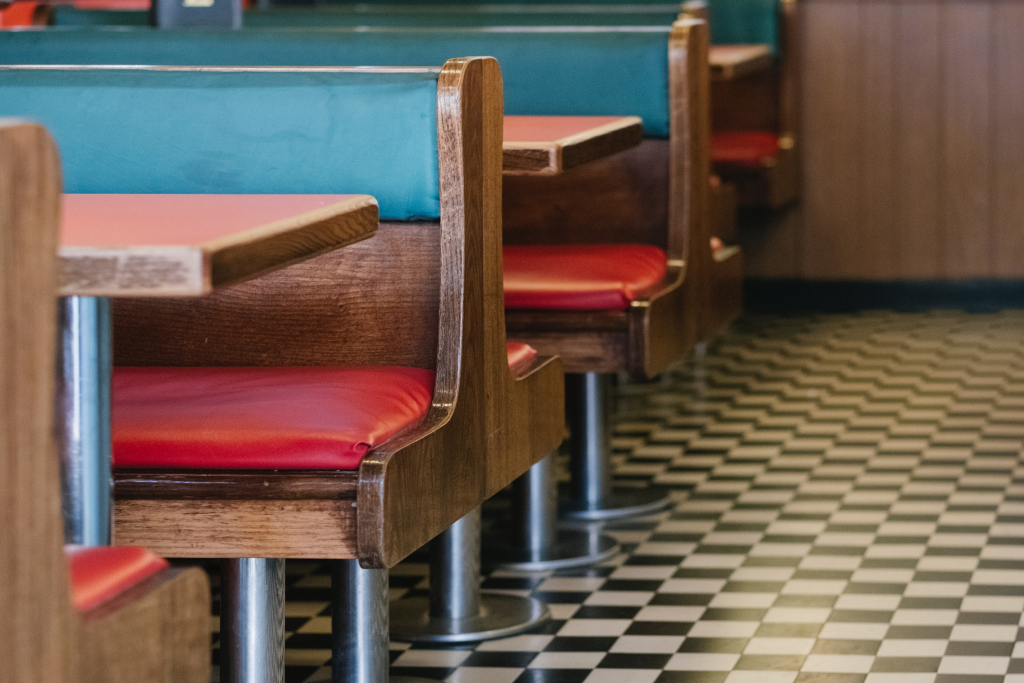
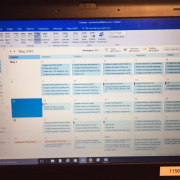
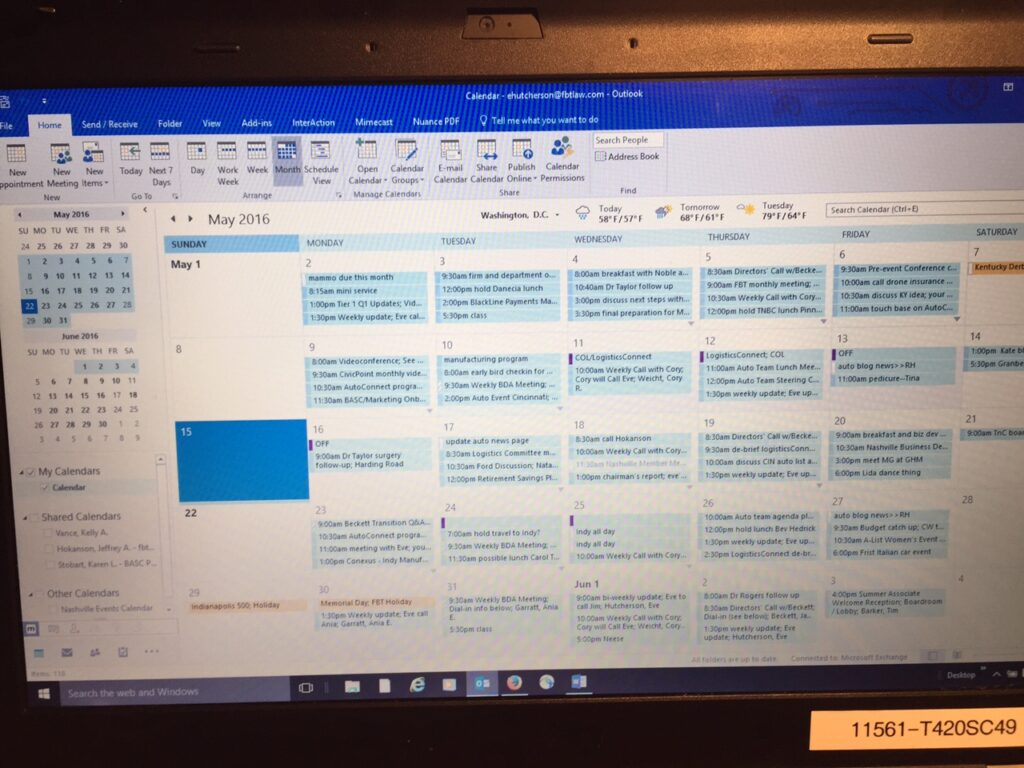

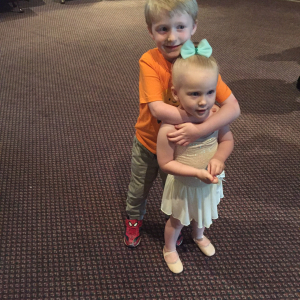
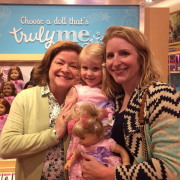
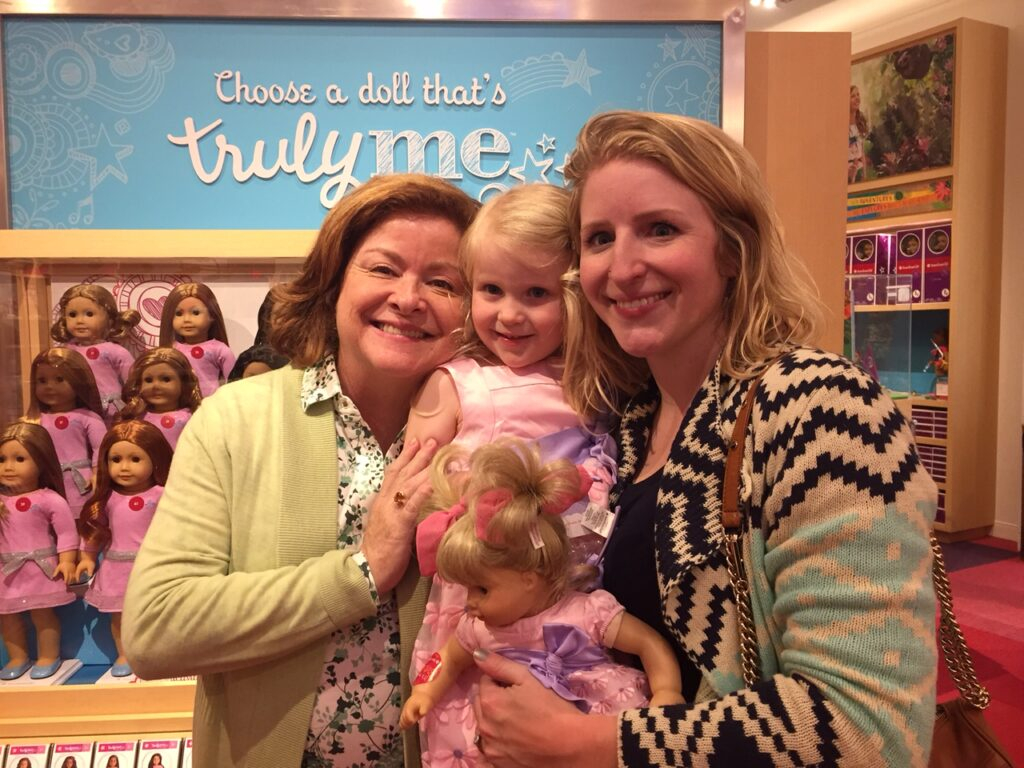
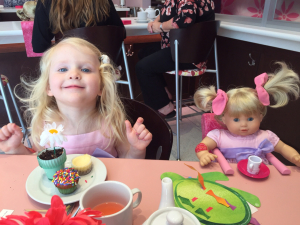 It is a truth universally acknowledged (as the immortal Austen might have put it), that giving stuff to kids is fun.
It is a truth universally acknowledged (as the immortal Austen might have put it), that giving stuff to kids is fun.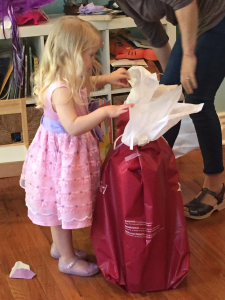
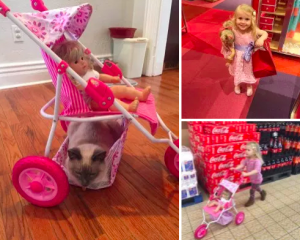 the ladies room and missed the inevitable challenge. Her mother reported it went as follows.
the ladies room and missed the inevitable challenge. Her mother reported it went as follows.